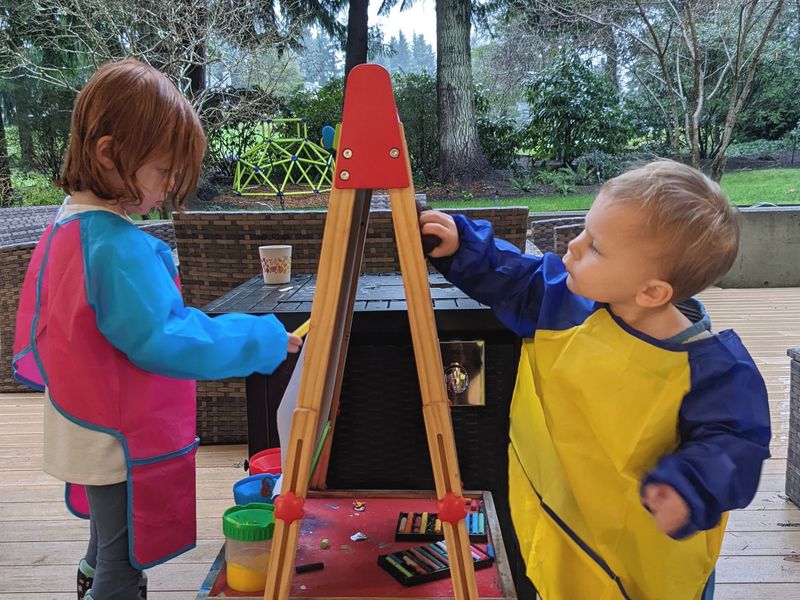Parenting is a journey filled with ups and downs, joys and challenges. It’s only natural to want the best for your child, pushing them to achieve their full potential. However, there’s a fine line between guiding and overwhelming them with high expectations. Being too hard on your child can lead to stress, anxiety, and a strained relationship. Recognizing the signs that you might be pushing too hard is crucial in fostering a nurturing environment where your child feels supported and loved. Here are seven indicators that it might be time to ease up and let your child breathe.
1. Constant Criticism

Imagine a child who feels their every move is monitored, waiting for the inevitable critique. Constant criticism can erode a child’s self-esteem and confidence. They may become hesitant, fearing their actions will never be good enough.
Instead of inspiring improvement, this approach often leads to anxiety and self-doubt. Children need encouragement and constructive feedback to thrive.
Try replacing criticism with positive reinforcement, celebrating small victories and acknowledging efforts. This not only builds trust but also fosters a positive environment for growth.
2. Unrealistic Expectations

Picture a child trying to balance between academic excellence and extracurricular success, overwhelmed by the weight of expectations. Unrealistic goals can cause a child to feel inadequate, no matter how hard they try.
This pressure can lead to burnout, affecting their mental well-being and zest for learning. Supporting your child in setting achievable goals encourages a healthier mindset.
Help them prioritize what truly matters, emphasizing effort over perfection. This nurtures resilience, allowing them to grow into well-rounded individuals who savor achievements without undue stress.
3. Lack of Downtime

Imagine a child’s schedule packed with activities, leaving little room for rest or play. Lack of downtime can lead to exhaustion and hinder creativity. Children need unstructured time to recharge and explore their interests.
A busy schedule might seem beneficial, but it can prevent them from discovering their passions. Balance is key to nurturing a child’s development.
Encourage free play and relaxation, allowing them the freedom to be kids. This not only boosts their creativity but also strengthens their problem-solving skills, essential for personal growth.
4. Ignoring Emotional Needs

Consider a child who feels unseen, their emotions overlooked in the hustle of daily life. Ignoring emotional needs can lead to feelings of loneliness and anxiety.
Children require emotional support to develop healthy relationships and self-worth. Listening and validating their feelings show them they’re valued and heard.
Taking time to connect, even amidst chaos, strengthens the parent-child bond. This builds a foundation of trust, helping them navigate life’s challenges with confidence and security.
5. Punishing Mistakes Harshly

Think of a child who fears trying new things due to past punishments for mistakes. Harsh responses can impede learning and growth. Mistakes are natural and offer valuable lessons.
Over-punishment can instill fear rather than understanding, making them avoidant and anxious. Guiding them through errors with patience helps them learn accountability.
Encourage discussions about what went wrong and potential solutions. This approach fosters resilience and confidence, empowering them to embrace challenges without fear of failure.
6. Overemphasis on Achievement

Visualize a child who sees their worth measured by accolades and performance. Overemphasis on achievement can overshadow personal growth and happiness.
Children might feel pressured to excel, leading to stress and resentment. Focusing solely on results undermines their intrinsic motivation and love for learning.
Celebrate their efforts and personal milestones, not just successes. This promotes a balanced perspective, encouraging them to appreciate the journey as much as the destination.
7. Comparisons with Others

Imagine a child constantly compared to siblings or peers, feeling they never measure up. Comparisons can damage self-esteem and create rivalry.
Every child is unique, with their own strengths and talents. Emphasizing individuality helps them appreciate their qualities and build confidence.
Celebrate their unique abilities and achievements, fostering a sense of pride and self-worth. This encourages a positive self-image and healthy relationships with others.

Well, hello there!
My name is Jennifer. Besides being an orthodontist, I am a mother to 3 playful boys. In this motherhood journey, I can say I will never know everything. That’s why I always strive to read a lot, and that’s why I started writing about all the smithereens I came across so that you can have everything in one place! Enjoy and stay positive; you’ve got this!

